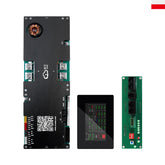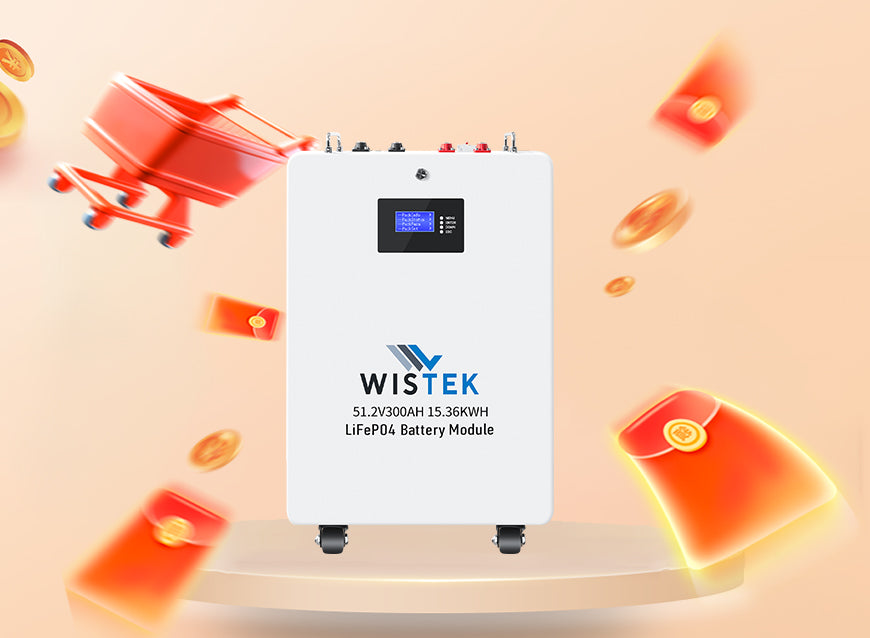Wie lange versorgt eine 100-Ah-Lithiumbatterie einen Kühlschrank mit Strom?
- 100 Ah Lithiumbatterie und Stromverbrauch des Kühlschranks
- Faktoren, die die Akkulaufzeit eines Kühlschranks beeinflussen
- So verlängern Sie die Laufzeit Ihrer 100-Ah-Lithiumbatterie
100 Ah Lithiumbatterie und Stromverbrauch des Kühlschranks
Um zu bestimmen, wie lange eine 100-Ah-Lithiumbatterie einen Kühlschrank mit Strom versorgen kann, ist es wichtig, zunächst den Energieverbrauch eines Kühlschranks zu verstehen. Der Stromverbrauch wird üblicherweise in Watt gemessen und kann je nach Modell, Alter, Größe und Effizienz des Kühlschranks variieren. Moderne Kühlschränke verbrauchen im Durchschnitt zwischen 100 und 800 Watt.
Bei der Betrachtung des Energieverbrauchs eines Kühlschranks sollten wir auch berücksichtigen, dass Kühlschränke nicht im Dauerbetrieb laufen. Stattdessen schalten sie sich ein und aus: Sie schalten sich ein, um den Innenraum zu kühlen, und wieder aus, sobald die gewünschte Temperatur erreicht ist. Der Gesamtenergieverbrauch über die Zeit ergibt sich aus dem Durchschnitt dieser Zyklen.
Aufschlüsselung des Stromverbrauchs des Kühlschranks
Um diese Berechnung durchzuführen, betrachten wir einen typischen Kühlschrank mit einem Stromverbrauch von 150 Watt. Angenommen, er läuft 8 Stunden am Tag (mit gelegentlichem Ein- und Ausschalten), lässt sich der Energieverbrauch über 24 Stunden wie folgt berechnen:
Stromverbrauch pro Tag = 150 Watt x 8 Stunden = 1200 Wattstunden (Wh)
Das bedeutet, dass der Kühlschrank täglich 1200 Wh Energie verbraucht. Wenn Ihre 100-Ah-Lithiumbatterie vollständig geladen ist, können Sie anhand der Kapazität der Batterie in Wattstunden abschätzen, wie lange sie hält.
Umrechnung der Kapazität einer 100-Ah-Lithiumbatterie in Wattstunden
Um die Amperestundenzahl (Ah) in Wattstunden (Wh) umzurechnen, lautet die Formel:
Wattstunden = Amperestunden x Batteriespannung
Bei einer typischen 12-V-Lithiumbatterie hätte eine 100-Ah-Lithiumbatterie eine Kapazität von:
100 Ah x 12 V = 1200 Wh
Dies bedeutet, dass eine vollständig geladene 100-Ah-Lithiumbatterie das Potenzial hat, 1200 Wattstunden Energie bereitzustellen. In diesem Beispiel würde ein Kühlschrank, der an einem Tag 1200 Wh verbraucht, theoretisch einen ganzen Tag (24 Stunden) lang mit einer vollständig geladenen 100-Ah-Lithiumbatterie laufen.
>>Siehe auch: Wie sich Golfwagenbatterien von normalen Autobatterien unterscheiden
Faktoren, die die Akkulaufzeit eines Kühlschranks beeinflussen
Während uns die grundlegende Mathematik eine ungefähre Vorstellung davon gibt, wie lange eine 100-Ah-Lithiumbatterie einen Kühlschrank mit Strom versorgen kann, beeinflussen mehrere Variablen die tatsächliche Laufzeit. Dazu gehören die Effizienz der Batterie, der Kühlschranktyp, die Umgebungsbedingungen und mehr.
Batterieeffizienz
Einer der wichtigsten Faktoren für die Batterielaufzeit ist die Effizienz der Lithiumbatterie selbst. Lithiumbatterien sind im Vergleich zu Blei-Säure-Batterien für ihre hohe Effizienz bekannt, erreichen jedoch keinen 100-prozentigen Wirkungsgrad. Eine typische Lithiumbatterie verliert Energie in Form von Wärme und Innenwiderstand. In der Praxis kann man mit einer Effizienz von etwa 90–95 % rechnen, was bedeutet, dass eine voll geladene 100-Ah-Lithiumbatterie etwas weniger als ihre nominale Kapazität von 1200 Wh liefern kann.
Kühlschrankgröße und -typ
Typ und Größe des Kühlschranks spielen eine wichtige Rolle für den Energieverbrauch. Ein kleiner, kompakter Kühlschrank verbraucht deutlich weniger Energie als ein normaler Kühlschrank. Zudem laufen energieeffiziente Modelle mit minimalem Stromverbrauch mit einer 100-Ah-Lithiumbatterie länger als ältere oder weniger effiziente Modelle.
Umgebungstemperatur und Kühlschrankisolierung
Umweltfaktoren wie die Umgebungstemperatur können den Stromverbrauch eines Kühlschranks beeinflussen. In wärmeren Klimazonen muss der Kühlschrank mehr arbeiten, um den Innenraum kühl zu halten, und verbraucht daher mehr Strom. Gut isolierte Kühlschränke halten die Temperatur zudem effizienter und verbrauchen insgesamt weniger Energie. Bei kälteren Bedingungen verbraucht ein Kühlschrank daher möglicherweise weniger Strom, was die Laufzeit der 100-Ah-Lithiumbatterie verlängert.
Batterieentlade- und Ladezyklen
Ein wesentliches Merkmal von Lithiumbatterien ist ihre Tiefentladefähigkeit. Im Gegensatz zu Blei-Säure-Batterien, die bei Tiefentladung deutlich an Lebensdauer verlieren, können Lithiumbatterien eine Entladung bis auf 20 % oder sogar 10 % ihrer Kapazität unbeschadet überstehen. Eine zu starke Entladung kann jedoch mit der Zeit ihre Lebensdauer verkürzen.
Um die Lebensdauer Ihrer 100-Ah-Lithiumbatterie zu verlängern, sollten Sie eine regelmäßige vollständige Entladung vermeiden. Wenn Sie sie auf 20 % ihrer Kapazität entladen (wodurch noch 20 Ah Ladung übrig bleiben), können Sie die Gesamtlebensdauer der Batterie verlängern. Dies ist ein wichtiger Aspekt bei der Abschätzung, wie lange eine 100-Ah-Lithiumbatterie Ihren Kühlschrank betreiben kann.
>>Siehe auch: Wie lange hält eine 24-Volt-Batterie einen Laubbläser mit Strom?
So verlängern Sie die Laufzeit Ihrer 100-Ah-Lithiumbatterie
Man kann davon ausgehen, dass eine 100-Ah-Lithiumbatterie einen Kühlschrank etwa einen Tag lang mit Strom versorgen kann. Es gibt jedoch mehrere Möglichkeiten, die Effizienz des Systems zu maximieren und die Batterielaufzeit zu verlängern.
Verwenden Sie einen hocheffizienten Kühlschrank
Die Wahl eines hocheffizienten Kühlschranks kann die Lebensdauer einer 100-Ah-Lithiumbatterie erheblich verbessern. Kühlschränke mit Energy-Star-Zertifizierung verbrauchen weniger Strom und bieten dennoch die nötige Kühlleistung. Wenn Sie Ihren Kühlschrank mit Batteriestrom betreiben möchten, kann die Wahl eines dieser Modelle die gesamte Einrichtung praktikabler machen.
Nutzen Sie Solarladung
Wenn Sie eine 100-Ah-Lithiumbatterie netzunabhängig nutzen möchten, ist die Nutzung von Solarmodulen eine der besten Möglichkeiten, sie geladen zu halten. Solarmodule können die Batterie tagsüber aufladen, sodass Sie Geräte wie Ihren Kühlschrank über längere Zeiträume betreiben können, ohne sich Sorgen über einen Stromausfall machen zu müssen.
Eine typische Solaranlage kann je nach Sonneneinstrahlung zwischen 100 und 400 Watt Leistung pro Modul liefern. Mit einem geeigneten Solarladesystem können Sie die Batterie tagsüber aufladen und so sicherstellen, dass sie Ihren Kühlschrank die ganze Nacht über mit Strom versorgt.
Erwägen Sie das Hinzufügen weiterer Batterien
Sollte eine 100-Ah-Lithiumbatterie nicht ausreichen, können Sie das System jederzeit um weitere Batterien erweitern. Durch die Parallelschaltung mehrerer Batterien erhöht sich die Gesamtkapazität und der Kühlschrank kann länger betrieben werden.
Zusammenfassend lässt sich sagen, dass eine 100-Ah-Lithiumbatterie einen Kühlschrank bei einem typischen Stromverbrauch von 150 Watt und einer durchschnittlichen Nutzung von 8 Stunden pro Tag etwa einen ganzen Tag lang mit Strom versorgen kann. Die tatsächliche Laufzeit kann jedoch je nach Faktoren wie Kühlschrankgröße, Effizienz, Umgebungsbedingungen und Batteriezustand variieren.
Wenn Sie die Funktionsweise einer 100-Ah-Lithiumbatterie und die damit verbundenen Variablen verstehen, können Sie fundierte Entscheidungen über die Nutzung von Batteriestrom für Ihren Kühlschrank und andere Geräte treffen. Investitionen in hocheffiziente Geräte, die Nutzung von Solarmodulen zum Laden und der Einbau zusätzlicher Batterien sind Strategien, die Ihnen helfen, die Leistung Ihres Systems zu optimieren und eine zuverlässige, langfristige Stromversorgung sicherzustellen.
Denken Sie daran: Eine 100-Ah-Lithiumbatterie kann Ihren Kühlschrank zwar etwa einen Tag lang betreiben, es ist jedoch immer wichtig, die Batterieleistung zu überwachen und Maßnahmen zu ergreifen, um ihre Lebensdauer zu verlängern. Egal, ob Sie sie für netzunabhängiges Wohnen, Camping oder als Notstromquelle verwenden: Wenn Sie wissen, wie lange Ihre 100-Ah-Lithiumbatterie einen Kühlschrank betreibt, können Sie Ihren Energiebedarf effektiv planen.

























Leave a comment
All blog comments are checked prior to publishing